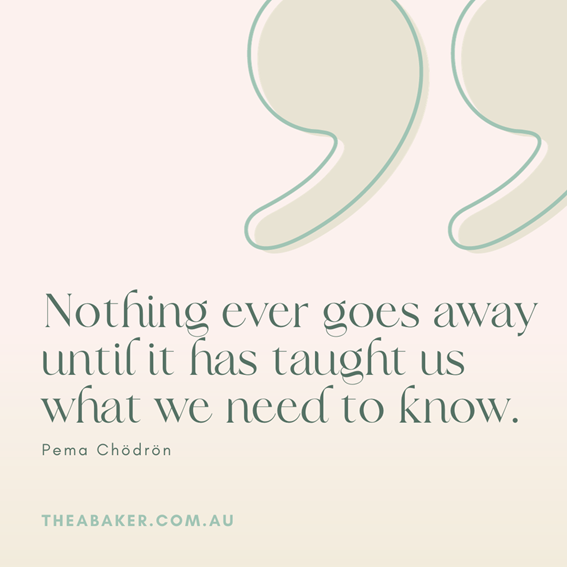Time to talk about it?
Time to talk about it?
You might have missed it, but one of the things that is on the front page of the website is: “Coming to counselling is a big deal. Welcome.” It was such a deliberate choice of words because I truly believe that the decision to rock up to therapy for the first (or even the tenth) time is super brave and can feel really daunting. First off therapy aims to support people in getting to the root of our tricky or painful thoughts, emotions and patterns of behaviour – but heck, none of that is easy and very often it’s not a straightforward process.
- Finding a good therapist is like finding a good hairdresser – it’s a super personal thing and you don’t have to stick with the first one you work with.
You’re not going to into a life-long commitment with your therapist so try not to put too much pressure to find ‘the one’. Also, if they turn out to not to be a good fit for you, or even that after a while things get stale or stop working well you can totally break up with them.
- Have a think about your goals for starting therapy.
You don’t have to have all this fleshed out, but it’s helpful that you can articulate what it is that you’re hoping to get out of therapy when you rock up for your first session – it helps your therapist know why you’re there, and how they can help you. It also helps set the tone for what should prove to be a collaborative relationship.
- You won’t have a big ‘ah-ha’ moment every session.
We have all heard the stories from people who say that they went to therapy and their amazing therapist said this thing that made their whole existence make sense, and the clouds parted and out flew unicorns farting rainbows. Well, it doesn’t really happen like that, and although there are sessions where we might have a moment of great insight, usually therapy looks more like steady progress towards knowing yourself better, healing from hurt and trauma and untangling the funky thinking that started in childhood.
- So yes, you probably are going to have to talk about your childhood.
It might sound clichéd but so many of our patterns of thinking, our emotional responses and behaviours start from when we were little humans trying to make sense of an adult world, where most of our adults were doing the very best they could with what they knew and had at the time, but sometimes we just didn’t get what we needed. We’re all uniquely complex humans and our childhoods are a good place to start the unravelling process.
- There will be times you don’t really like going to / enjoy therapy.
Sometimes going to therapy will feel like something you’re excited to do and other times it’s going to feel like the workout that you dread doing but feel so much better for afterwards! Often things get worse before they start to feel better (which is part of why it’s so important to be working with the right person) – but a bit like driving through a long dark tunnel, we don’t stop and get out of the car halfway through, that’s when we push through and get out as safely as possible!

- There will be times that you won’t even like your therapist.
Even the best and most likeable therapist is going to irritate you / get something wrong sometimes. In those instances, it’s really important that you feel able to articulate what you’re feeling because that’s such a powerful moment to experience relational healing (see point 10). Drawing on that exercise analogy, therapists are sometimes like that Personal Trainer who gets you to do burpees even though you made it very clear in your first session you don’t like them. Even though they don’t make you do them every session, sometimes even burpees are good for you!
- You can ask your therapist anything – and give them feedback – that’s how they get better.
You can (and should) ask your therapist anything that is on your mind. Whether it’s to better understand something or even something that feels personal but is important you to – let them decide where their boundaries are.
- Set aside some post-therapy processing time – give yourself the space to let the learnings land.
Sometimes the best therapy happens on the drive home when all the little pieces click into place, or when you’re at home journaling your reflections. Do try to set aside some time before / after sessions to allow you to start a session without distractions and have some space afterwards to decompress.
- You don’t have to be ‘unwell’ or have a clinical diagnosis to go to therapy.
Therapy isn’t just for when we feel at rock bottom or struggling with symptoms of mental ill-health – it’s also a place to proactively tackle our patterns. This is especially true of couples therapy where it’s so much better if we can head in for a reset / tune-up / reconnection than attend in crisis.
- Therapy is where we get to practice for real life.
Therapy is an experiential process. We get to practice different ways of ‘being’ (such as standing up for yourself, being vulnerable, showing emotion, working through a rupture or disagreement with your therapist for example) in a safe place where there are no negative consequences.
If you’d like to explore therapy, or would like a safe space to talk about your mental health, please get in touch with us: www.theabaker.com.au / hello@theabaker.com.au / 03 9077 8194.
